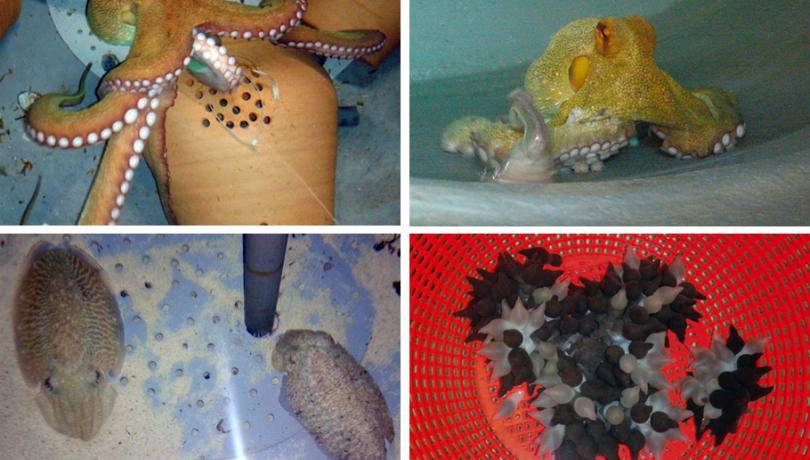Cephalopods are a group of molluscs including species like the octopus, squid and cuttlefish, which have been recently included in the European Directive on the protection and management of experimental animals for scientific purposes. This is a significant advance in the field of animal science laboratory since it is the only group of invertebrates included in this directive and represents an entire class of molluscs with about 800 described species.

Cephalopods are a group of molluscs including species like the octopus, squid and cuttlefish, which have been recently included in the European Directive on the protection and management of experimental animals for scientific purposes. This is a significant advance in the field of animal science laboratory since it is the only group of invertebrates included in this directive and represents an entire class of molluscs with about 800 described species.
In this new legislative framework, the ICM organizes the course "Biology and care of cephalopods", from 14 to 17 March 2016, with the main objective to train researchers and technicians in the experimentation with these animals. This is the first course with these characteristics in Spain, particularly in Barcelona.
The organization and scientific management will be handled by ICM researchers Mercedes Blázquez and Roger Villanueva, in collaboration with Patrocinio Vergara, from the Department of Veterinary Medicine at the Universitat Autònoma of Barcelona, and Graziano Fiorito, from the Stazione Zoologica Anton Dohrn of Naples. The course will also be conducted by international specialists in experimentation from different countries.
Cephalopods as lab animals
The decision to include cephalopods as the only representative group of invertebrates in the list of "laboratory animals" is because of the complex development of their nervous and sensory system. Their cognitive abilities make them able to develop such elaborate behaviours and learning tasks that these animals are considered able to experience pain, suffering and distress.
The annexes of the Spanish Royal Decree RD53/2013 do not include general information about care, environment, maintenance recommendations and methods of killing of cephalopods. Recently, these lacks have been highlighted, thanks to the efforts of the scientific community to settle the first guidelines for care and welfare of cephalopods used in research. In general, the aim is to apply the three R principle: refinement, reduction and replacement when using animals in experiments.
Contents of the course
The course is addressed to: i) people directly involved in the management and execution of experimental procedures, ii) people involved in experimental projects that include the use of cephalopods, iii) veterinarians and inspectors that work with these species. This is mainly a practical course, with time for theoretical sessions closely related to the practical classes.
The daily lectures will provide a theoretical framework to perform the experimental procedures to be developed in the Experimental Aquariums and chambers Area (ZAE) of the ICM. The subjects will be complemented by aspects of anatomy and biology related to practical procedures, taking into account the education and training of staff. Each lecture will include information about the planning and preparation of the practical session; the information to be regarded when observing the animal; the possible expected side effects of a particular treatment; and the proper techniques to manage these animals in different experimental conditions.
The course is part of the training program in biology and care of cephalopods and is developed under the COST FA1301 Action, a network funded by the European Union to improve the welfare and breeding of cephalopods in research, aquaculture and fisheries. It is specifically designed to fill the technical and training gap that exists in the community of researchers and technicians using cephalopods for scientific purposes, and in compliance with Directive 2010/63 / EU and its transposition to Member States (Spain, RD53 / 2013).
More information